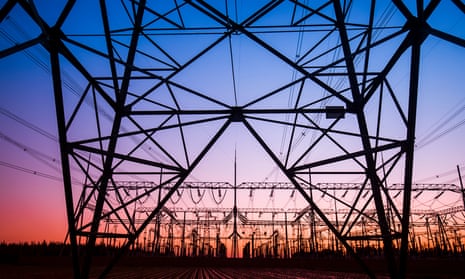The problem of the energy markets is not that they “remain fundamentally uncompetitive” (“The big six energy providers fleece their customers. The government must act”, Observer Comment, last week). They and other utilities cannot, by their nature, be competitive. Their privatisation, to raise money for the exchequer, to further the myth that low taxation can meet the social needs of an advanced economy, was bound to lead to over-pricing. Calls for regulation just distract from the problem.
The government, having set up a structure bound to function as a cartel, requires its members to purchase electricity generated by nuclear processes that no freely competitive supply company would buy (because of its price and risk), as part of an “energy policy”.
So, one mark for calling on the government to act and three marks if and when your editorials address the real issues in energy supply.
AJ Arnold
University of Leicester
I admit to being one of the “sticky 66%” who does not switch energy suppliers or tariffs. I pay on demand when I receive my bills, because I see no point in providing interest-free loans through direct debit schemes.
It is disingenuous of energy moguls to try to convince us high prices are because of the market. (“How ‘free-market competition’ has helped big six rack up huge profits”, News, last week) When do we use most energy to light and heat our homes? In winter. When do energy suppliers raise prices? In winter. It’s not difficult to work out that that improves profits and lines shareholders’ pockets. Consumer fuel costs should be fair and equitable. Prices should be the same for units of electricity and gas, whether paying by pre-payment meter, quarterly on-demand or monthly direct debt. There would be no need for a multiplicity of tariffs or any of the other codswallop that passes for “a competitive market”. Supply and charges should be controlled and all utilities should be renationalised because the only beneficiaries of privatisation have been fat-cat corporations and shareholders
Paul F Faupel
Somersham, Cambridgeshire
Your report on the failing energy market did not mention the most important factor: there is not, never was and never could be any meaningful competition in the supply of oil and gas. Both come from global market pools and most electricity generation uses them, so few savings are possible.
That we have 20 or more companies, all with highly paid executives, and owners and shareholders to keep happy, inevitably costs massively more than the old public bodies did, where all salaries were paid on civil service scales. That many owners are foreign companies underlines the idiocy of privatisation. This applies to other sell-offs, with the simplest being water: until someone invents a cheaper way of making it, no competition exists.
David Reed
London
Most people will agree that charging the highest tariff on pre-payment meters is inequitable and even this government should be commended for taking some, limited, action. However, I find the rest of your campaign regarding energy price regulation on shakier ground. You could almost make the same points about the “scandal” of some supermarkets not matching the lowest prices of staples such as milk, bread and eggs with those of Aldi or Lidl. Despite two inquiries, no evidence has been found that the market is rigged against the consumer.
F O’Donovan
Dronfield, Derbyshire
